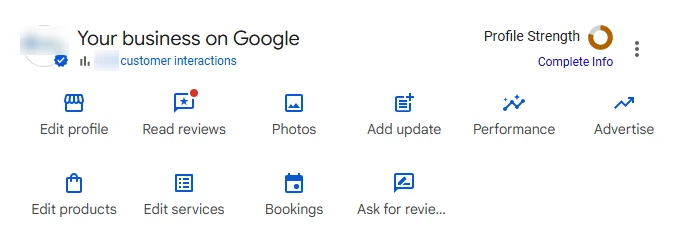Why You Should Never Google Your Company Name (And What You Should Do Instead)
We’ve all done it. It’s nothing to be ashamed of—you might have done it at the office, at home, or even in your car. Maybe you just tried it for the first time; maybe you’ve been doing it for years.
You Googled your own company to see what would show up.
And why wouldn’t you? You want to see your reputation online, how you appear on the search engine results page (SERP), and if all that work from your digital marketing partner is really working.
As crazy as it sounds, we want to tell you why you shouldn’t be Googling your company if you are a business owner or marketing manager—and how not doing so can actually help improve your online results and ROI.
Your Search Results Are YOUR Search Results
The truth is, ten people in your office could Google your company name and get ten different results based on their location, device, Wi-Fi network, search history, and demographic. In that split-second moment between you entering your search and the SERP loading, Google’s algorithms make calculations about what you’re most likely to click on.
The pages you are shown—as well as the headlines and descriptions—will be specific to you as a user. Your past online behavior informs each subsequent search: What have you clicked on in the past? What have you searched for over the last month? What device are you using, and where?
This is especially important when it comes to searches for your own name or company.
If I searched for “Blue Corona” twice a week for thirty days and never actually clicked on a link to our site, Google would assume based on my behavior pattern that I am not interested in actually visiting that website.
Over time, I’d be served fewer Blue Corona site pages on the SERP, which means I would not be seeing an accurate representation of our company’s keyword rankings in my area.
Google will also reward pages with high click-through rates when determining results for users. If a group of people at your company is always searching for the company name, that will have a minor negative effect on your own site’s click-through rate.
Summary
If you search for the same term repeatedly over time but never click to the site you’re looking for, Google will learn your habits and alter your results so you see that site less and less over time. You may also (incrementally) bring down the click-through rate for that site, making it less appealing to Google.
You Could Affect Your Advertising Effectiveness
If your company runs pay-per-click (PPC) ads as a part of your digital marketing strategy, it’s very likely that you are running branded PPC ads. These are lower-cost ads that appear when your company name is searched for—they are used to own as much of the SERP as possible, and to protect that real estate from your competitors.
Much like the organic search results on a SERP, Google also automatically determines which PPC ads will be shown to a user based on a number of factors. One of those metrics is click-through rate; an ad that is more frequently clicked on will have an advantage when ads are selected.
If you regularly search for your business, you risk bringing down the click-through rate of your own branded PPC ads—you’ll also be taking up an impression that could have been used for an actual customer.
Summary
Your repeat search behavior can have unintended consequences when it comes to the effectiveness of your PPC campaign. They won’t make or break your effectiveness in this channel, but it’s still best to avoid if possible.
So, What Should I Do Instead of Googling My Company Name?
You still need ways to hold your digital marketing partner accountable. You need to know what your investment is getting you in terms of online visibility, especially when you can’t even always see the result of SEO work that’s done on your behalf.
Here are some examples of what a strategic and well-organized digital marketing partner should be able to share with you:
- Aggregate keyword ranking data to illustrate average position for keywords across multiple users for a more accurate representation of visibility
- Search impression and click data to show how your search presence is growing on terms over time
- Qualified traffic, lead, and conversion data—is your online presence growing among a relevant audience who’s likely to reach out?
- Return on investment (ROI)—what revenue can be directly attributed to your SEO and PPC campaigns if you decide to share your sales data with your marketing team?
Our main focus at Blue Corona is growing client visibility—and profitability—online. Our partners have a high level of visibility into their marketing campaigns through the data we provide them regularly so they don’t have to resort to Googling themselves as a way to measure success.
Transparent Marketing (So You Don’t Have to Google Your Company Name)
Does your digital marketing partner keep you informed enough to break your guilty search habits? If you’re interested in learning more about our expertise in online visibility and lead generation, contact us today.




Recent Comments